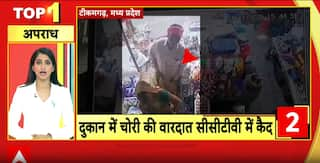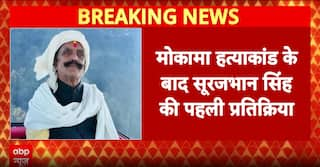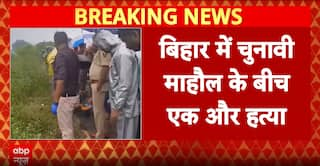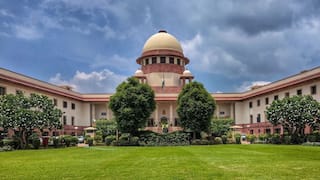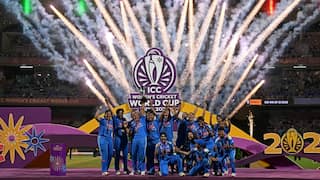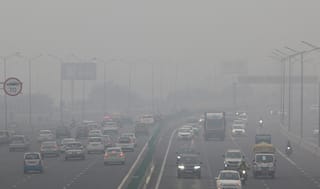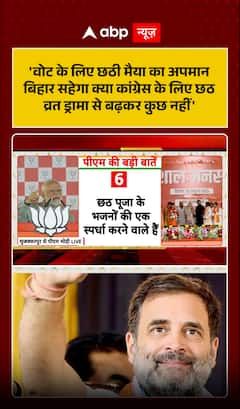COP27: UN Climate Deal Draft Mentions India's Two Key Points In Mitigation Clause. Here’s What They Mean
COP27: The first point in the draft is about the acceleration of efforts towards the "phasedown of unabated coal power", and the second is about the phase-out of inefficient fossil fuel subsidies.

COP27: The final United Nations climate deal draft, or the Sharm el-Sheikh Implementation Plan, published on November 20, at the UN Climate Change Conference, mentions 16 clauses. The mitigation clause in the draft decision text includes both of the key points of India. The first point is about the acceleration of efforts towards the "phasedown of unabated coal power", and the second point is about the "phase-out of inefficient fossil fuel subsidies".
The second point also mentions "providing targeted support to the poorest and most vulnerable" in line with national circumstances.
What the points in the mitigation clause mean with respect to India
The mitigation clause calls for the recognition of the need for support towards a just transition. Just transition refers to the process of greening the economy in a fair way by including everyone and creating decent work opportunities.
A fossil fuel subsidy is any government action that lowers the cost of fossil fuel energy production, increases the price received by energy producers, or lowers the price paid by energy consumers, and divert the funds away from the "maximum available resources" needed to combat climate change.
In the initial draft released by the UN, the word "phase-out" was used instead of phasedown for coal.
The points about the phasedown of unabated coal power, and the "phase-out of inefficient fossil fuel subsidies" while providing targeted support to the poorest and most vulnerable were mentioned in the Glasgow Climate Pact signed at COP26 last year.
The point about providing targeted support to the poorest and most vulnerable means that the countries lacking in economic resources and vulnerable to climate change-induced disasters must be provided with climate finance. The UN climate summit secured agreement on a “loss and damage” fund which would help countries hit by climate-induced disasters in many ways, including providing the money required for relocation of people displaced by floods.
Loss and damage refers to the destruction caused by climate change-induced disasters, and was one of the main topics of discussion at COP27.
Poor and developing countries, including India, had been demanding climate finance to deal with loss and damage for a long time.
Phase-out of coal means putting a complete stop on coal, while phasedown means reducing the proportion of coal in total energy.
UN draft does not include the “phasedown of all fossil fuels”
At COP27, India said that it wants countries to agree to phase down all fossil fuels, rather than a deal to phase down just coal. However, the draft only mentions the phasedown of coal, and does not include all fossil fuels. COP26 marked the first time parties committed to speed up efforts towards a "phasedown of unabated coal power".
Referring to a report by the UN climate science panel which stated that countries must halve emissions by 2030 to meet climate goals, India said there should be a substantial reduction in fossil fuel use to meet climate goals by 2030.
Other important aspects of the mitigation clause
The mitigation clause of the final draft calls upon parties to accelerate the development, deployment and dissemination of technologies, and the adoption of policies, to transition towards low-emission energy systems, including by rapidly scaling up the deployment of clean power generation and energy efficiency measures, and including accelerating efforts towards the phasedown of unabated coal power and phase-out of inefficient fossil fuel subsidies.
This means that all the Parties which signed the Paris Agreement should develop, deploy and distribute technologies, and adopt policies which will help them move towards energy systems that release reduced amounts of pollutants such as exhaust gases.
The clause also calls for Parties to deploy measures that allow clean power to be generated, and are energy efficient.
Why should inefficient fossil fuel subsidies be phased out?
The Parties must take steps which will help phase down unabated coal power, and phase-out the fossil fuel subsidies which are inefficient, because they can hinder progress in a country's transition. This is because they distort prices, induce economic inefficiencies and poor environmental outcomes, and put pressure on scarce public resources. Most importantly, inefficient fossil fuel subsidies must be phased out because they can encourage the use and production of fossil fuels and the accumulation of carbon intensive assets.
India calls ‘loss and damage’ fund ‘historic’
The UN draft mentioned a "loss and damage fund", a decision India called "historic", adding that the "world waited far too long for this". India welcomed it as a testament to the persistence and perseverance of climate vulnerable countries and a warning to polluters that can no longer go with their climate destruction without any punishment or paying the price for it.
What are sustainable lifestyles?
The Sharm-El-Sheikh Implementation Plan also notes the importance of transition to "sustainable lifestyles" and "sustainable patterns of consumption and production for efforts to address climate change". This means that the plan encourages the world to lead lifestyles where not only are their needs fulfilled, but the ecosystems are also taken care of, and the ability of future generations to meet their own needs is not compromised.
If countries follow sustainable patterns of consumption and production, climate change can be combated in an efficient manner.
India welcomed the inclusion of transition to sustainable lifestyles and sustainable patterns of consumption and production.
India will not burden smallholder farmers with mitigation responsibilities
Union Environment Minister Bhupender Yadav said at the closing plenary of COP27 that India is establishing a four-year work programme on climate action in agriculture and food security, according to a statement released by the Ministry of Environment, Forest and Climate Change. He explained that agriculture, which is the main source of livelihood for millions of smallholder farmers, will be hit hard by climate change, because of which they should not be "burdened with mitigation responsibilities.
Yadav said that India has kept mitigation in agriculture out of its Nationally Determined Contributions (NDCs), which are the heart of the Paris Agreement and the achievement of its long-term goals. NDC is a climate action plan to cut emissions and adapt to climate impacts, and must be established by each Party to the Paris Agreement, and updated every five years.
India has embarked on renewable energy initiatives
Earlier, Yadav said at COP27 that India is undertaking an arduous effort to fight climate change despite accounting for less than four per cent of the world's cumulative emissions so far, and despite the country's annual per capita emissions being about one-third of the global average.
The environment minister also said that India has embarked on new initiatives in renewable energy e-mobility, ethanol-blended fuels and green hydrogen as alternative energy sources.
How can a global “just transition” be achieved?
Yadav explained at the closing plenary that just transition can be equated with low-carbon development. Low-carbon development refers to a pattern of development that aims to reduce carbon dioxide emissions as much as possible while not affecting the increase of economic welfare at the same time.
He concluded that developed countries taking the lead in climate action is a very important aspect of global "just transition".











